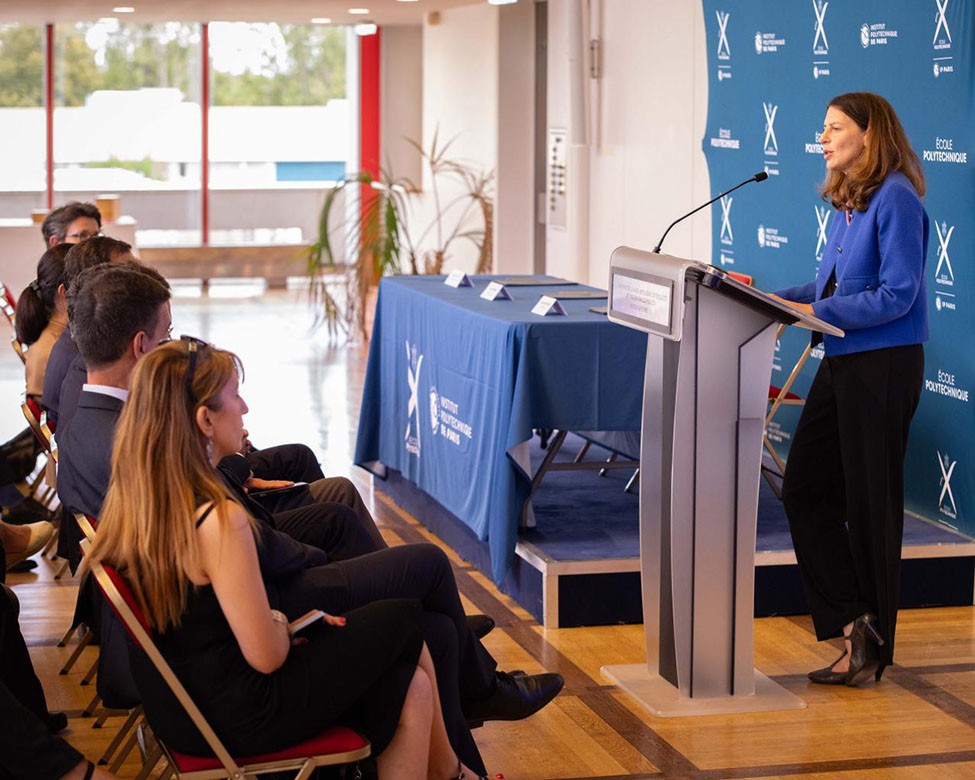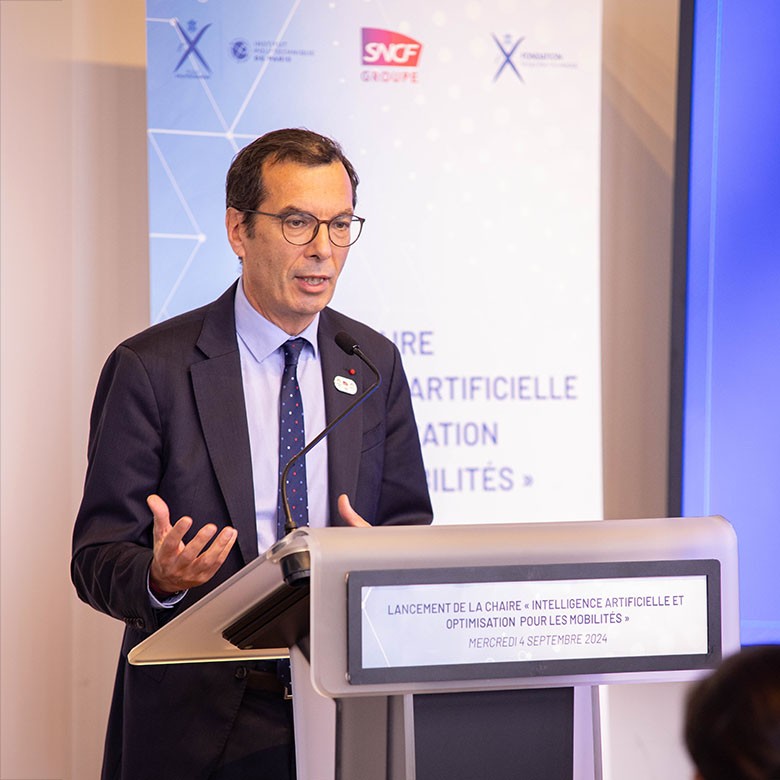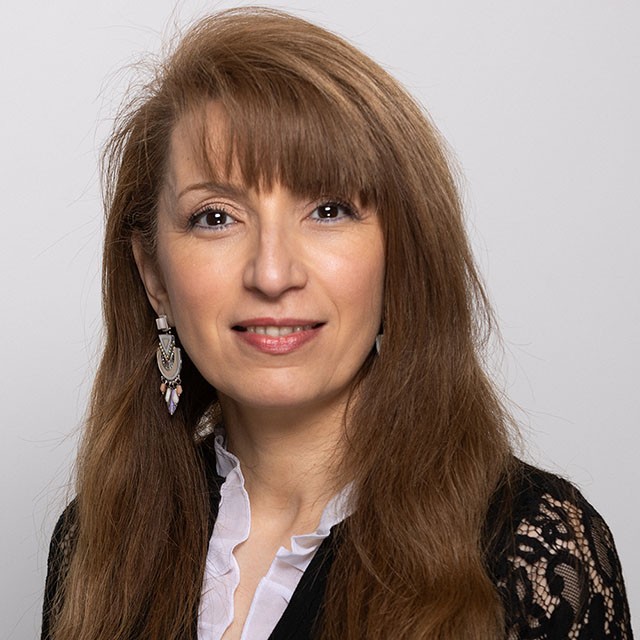A new Chair for AI and mobility
 The "Artificial Intelligence and Optimisation for Mobility" Chair was launched on 4 September 2024. / Photo: Dimitri Klosowski
The "Artificial Intelligence and Optimisation for Mobility" Chair was launched on 4 September 2024. / Photo: Dimitri Klosowski
The SNCF group, the École polytechnique and the Fondation de l'École polytechnique are launching a new teaching and research chair in artificial intelligence and optimisation for mobility.
This new Chair will develop innovative AI-based technologies to improve the quality of public transport services, optimise freight transport and encourage the use of more sustainable forms of mobility.
It will focus on the optimisation of transport infrastructure management, the reliability of rolling stock through predictive maintenance, the planning of road maintenance tasks, the forecasting of work dates to minimise their impact on traffic, and the prediction of delays and their repercussions to improve passenger information.

"This ambitious collaboration with a major public company like the SNCF reaffirms the École Polytechnique's determination to contribute to the country's future technological revolutions, particularly in the essential sector of mobility," said Laura Chaubard, President and managing director of the École Polytechnique, at the signing ceremony.
Headed by Sonia Vanier, a professor in the Computer Science Department at the École polytechnique (DIX) and a researcher at the Computer Science Laboratory of the École Polytechnique (LIX*), the chair funds the recruitment and training of researchers, doctoral students, post-doctoral researchers and engineers whose work will focus on two main areas: artificial intelligence and the optimisation of transport networks.

‘We are proud that a centre of excellence such as Polytechnique has chosen the SNCF as an application partner for its research’, said Jean-Pierre Farandou, President of the SNCF Group.
‘This partnership is a real opportunity to strengthen our position as a key tech player in the transport sector and to deepen our understanding of artificial intelligence,’ he added.
The launch of this chair will enable engineering students to discover the challenges of mobility and the transition undertaken by the rail sector in the fight against climate change.

"Thanks to this collaboration, we will be able to develop innovative projects combining the power of artificial intelligence technologies with the robustness of operational research methods. Our ambition is also to integrate the fruits of our research into our teaching programmes, in order to train the talents of tomorrow", explained Sonia Vanier, head of the Chair.
In 2003 and again in 2008, the École polytechnique and the Fondation de l'École polytechnique joined forces with another major public group - EDF - to launch their first teaching and research chairs. Both dedicated to the issue of energy and ecological transition, the ‘Sustainable Development’ and ‘Sustainable Energies’ chairs celebrated their 20th and 15th anniversaries respectively in 2023.
While partnerships between the public and private sectors are now widespread, the signing of the first chair at the École polytechnique in 2003 with the support of EDF was an innovative collaboration.
Twenty years on, X has more than 30 chairs dedicated to social, economic and environmental issues in fields as varied as data science and artificial intelligence, energy and the ecological transition, engineering and life sciences, innovative economics and responsible management, finance, transport, mobility and space, innovative materials, and the arts and society.
*LIX: a joint research unit CNRS, École Polytechnique, Institut Polytechnique de Paris, 91120 Palaiseau, France
 Support l'X
Support l'X 








